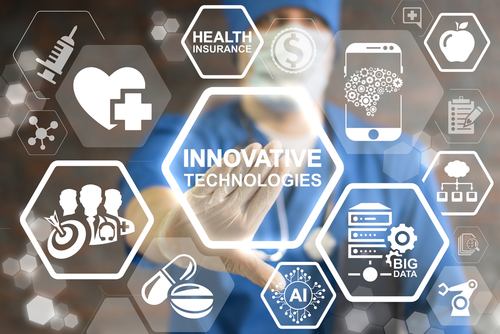Medical technology includes a wide range of innovations that play an important role in maintaining health. Biotechnology, pharmaceutical and information technologies, the development of medical devices and equipment, etc all fall under medical technology. Medical technology has contributed significantly to improving the health of people worldwide.
The Latest Advancements
From small, innovative technologies such as glue bandages and ankle braces to large, more complicated techniques such as MRI machines, artificial organs and robotic prosthetics have had a major impact on medicine. In the healthcare field, a growing reliance on medical technology has led to an inability to overlook it and as a result of these remarkable innovations, healthcare professionals are finding ways to improve their practices. This includes improving surgical procedures and improving patient care.
Tech innovation in the healthcare industry continues to provide doctors with new ways to improve patient quality and improve the health of people around the world. Through the integration of technology into diseases, surgery procedures, better access to information and health communication technologies, the healthcare industry and patients worldwide are benefitting. There are amazing new innovations, such as stem cell treatments for knees, and different new medicines on the market.
Changes in Use of Data
The healthcare industry is no longer an isolated area that has not been affected by technological innovation. The best health technology, such as IoT, large data and advanced analysis, has transformed traditional medical services into smart health care. The latest survey of our industry experts shows that the market for smart medical solutions is increasing at a rapid rate. By 2022, the anticipated market value of nearly us dollars is about 251 billion dollars and stakeholders in the world’s smart medical markets are looking for new opportunities in APAC and EMEA regions.
There are huge impacts on how healthcare technology is going to be able to reach those who have access to it and what medications it’s available for. Health care innovators are constantly studying new technologies to improve the quality of medical services, and we will soon see a rapid improvement in ongoing health surveillance techniques and emerging ways to detect chronic diseases.
Blockchain
New medical technology and it solutions have improved health practice, making healthcare more effective and safer than ever before. Health records and data are widely used to provide therapeutic services, as well as for medical research in order to discover the latest advances. Doctors use a variety of media, such as websites, mobile apps and social networks. The practice of telehealth has been extensively used to provide treatment for distant patients.
The advantage of blockchain to the healthcare industry is immense and has a wide range of effects on health professionals. Blockchain technologies can change health care and create mutually beneficial relationships between patients and physicians. Information exchange is safer and more secure than health data security. Blockchain technology is useful for experiments, investments and research. Hospitals are expected to have an intermittent system for regulating electronic medical records to simplify the complexity of the system supply chain.
Smart Medicine
A highly fragmented market, intelligent wearables has a positive impact on the smart medical field. In the development of smart medical technology. As digital information is introduced into the field, the trend of health solutions has increased. This is the main reason for expanding market share in this area by big names of smart medical technology companies.
Administrative Changes
As medical technology is progressing, we are seeing technological progress to manage healthcare, including administrative practices. We are looking at the trend of healthcare technology in this sector, which is designed to simplify patient life and solve a number of major issues for suppliers. In the era when medicine has made remarkable progress, inefficiency and failure of health care is still continuing due to a small technology used by the healthcare industry for management. Even in developed countries such as the United States, pen and paper methods are still being implemented nationwide.
Conclusion
Topics on the impact of technology on health should be studied, including technological significance in the healthcare sector, given how technology contributes to medical services and as these technologies develop, so do advances in medicine. Problems with health technologies has a negative impact on health.

